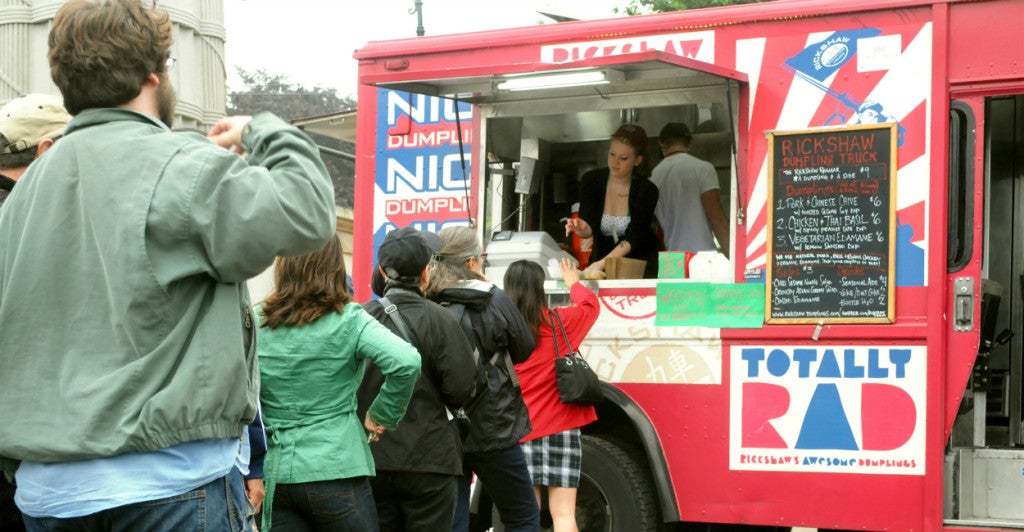Steaming mad at an ordinance targeting their business, four food truck vendors are hauling the city of San Antonio into court.
Facing $2,000-a-day fines for operating within 300 feet of a restaurant, the food truckers say the local restrictions are unconstitutional.
“San Antonio should be encouraging small-business owners like us, not trying to hurt our food truck businesses by playing favorites,” said food trucker Ricardo Quintanilla.
To operate legally, food vendors must get permission from any restaurant within 300 feet. If a restaurant opens within that zone, the truckers must move on.
The vendors’ lawsuit, filed Tuesday in Bexar County District Court, follows a successful challenge to a similar law in El Paso.
San Antonio’s ordinance applies to food trucks on private property that they own or lease, as well as to those using public parking spaces.
“No one should need their competitors’ permission to run a business,” said Institute for Justice attorney Arif Panju, lead counsel for the food truck operators. “We wouldn’t expect a mom-and-pop hardware store to get permission from Home Depot to open down the street, and, for the same reason, we shouldn’t expect food truck owners to have to get permission from restaurants.
“The 300-foot rule does nothing to help consumers. It is used to help restaurants eliminate their food-truck competition,” Panju said.
Seeking a permanent injunction against the city, the IJ complaint cites the Texas Constitution’s “substantive due course of law” guarantee, which Panju describes as “the right to earn an honest living in the occupation of one’s choice free from unreasonable governmental interference.”
Jeff Coyle, San Antonio’s director of government and public affairs, said in a statement:
The city has a long-standing policy of regulating the mobile food industry. The codes reflect a balance of interests between various sectors of the food industry and the public in an effort to maintain cooperation and communication, as well as to provide a safe environment for mobile food sales.
Jon Lindskog, vice president of the San Antonio Food Truck Association, said, “None of our members have had a problem with the ordinance.”
“Enforcement only happens if someone complains, and not many restaurants have complained,” he told Watchdog.org. “The city isn’t driving around looking for violators.”
Lindskog, who owns a restaurant and two food trucks, said the association is taking no position on the lawsuit.
“No one in our association has been cited, and no one has been shut down. There’s enough business for everybody,” he said.
Originally published in Watchdog.org.
